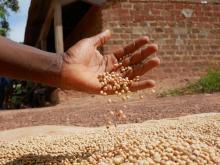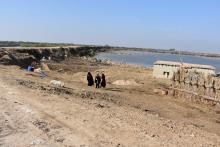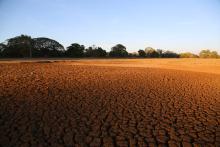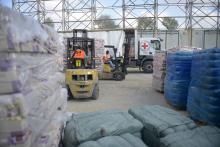The following text is an excerpt from an event summary by the Center for Climate and Security. This report was written by Siena Cicarelli, Patricia Parera, and Ethan Wong, and edited by Tom Ellison and Francesco Femia. This report summarizes the third roundtable in the series, Climate Change, Geopolitics, and Food Security: Implications for Europe, the United States, and Multilateralism, held in Brussels and virtually on 13 November 2023.












